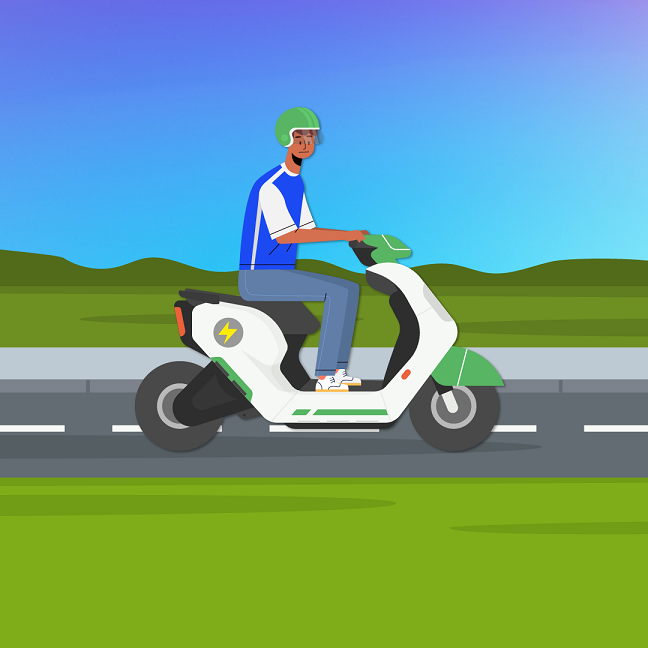Twenty-two-year-old Kashaf Nadeem, a third-year student at a private college, resides in Awan Town, Lahore. She is also a part-time delivery rider in a fast food company in Gulberg. Kashaf uses an electric bike as a means of transport.
She says that she has been riding an e-bike for about six months and has had a good experience as it costs less than a petrol bike. She just had to replace one indicator so far that was damaged in a minor accident.
“However, the battery and the speed cause trouble. Initially, I used to travel 80-90 km on its battery after one-time charging that is now limited to only 60 km.”
The battery of Kashaf’s bike takes five to six hours to fully charge and she faces no issue in charging yet.
E-vehicles policy and trend of e-bikes
The National Electric Vehicles Policy (NEVP) in Pakistan was approved in 2019 with a short-term target of bringing 0.5m vehicles, including small cars, two-wheelers (e-bikes), three-wheelers (rickshaws) and 'L' category four-wheelers in five years.
The long-term goals under this policy include boosting sales of e-bikes, rickshaws and small electric cars up to 50pc by 2030 and 90pc by 2040.
According to the Excise and Taxation Department, the number of e-bikes in Punjab had increased to 3, 963 by February 2024.
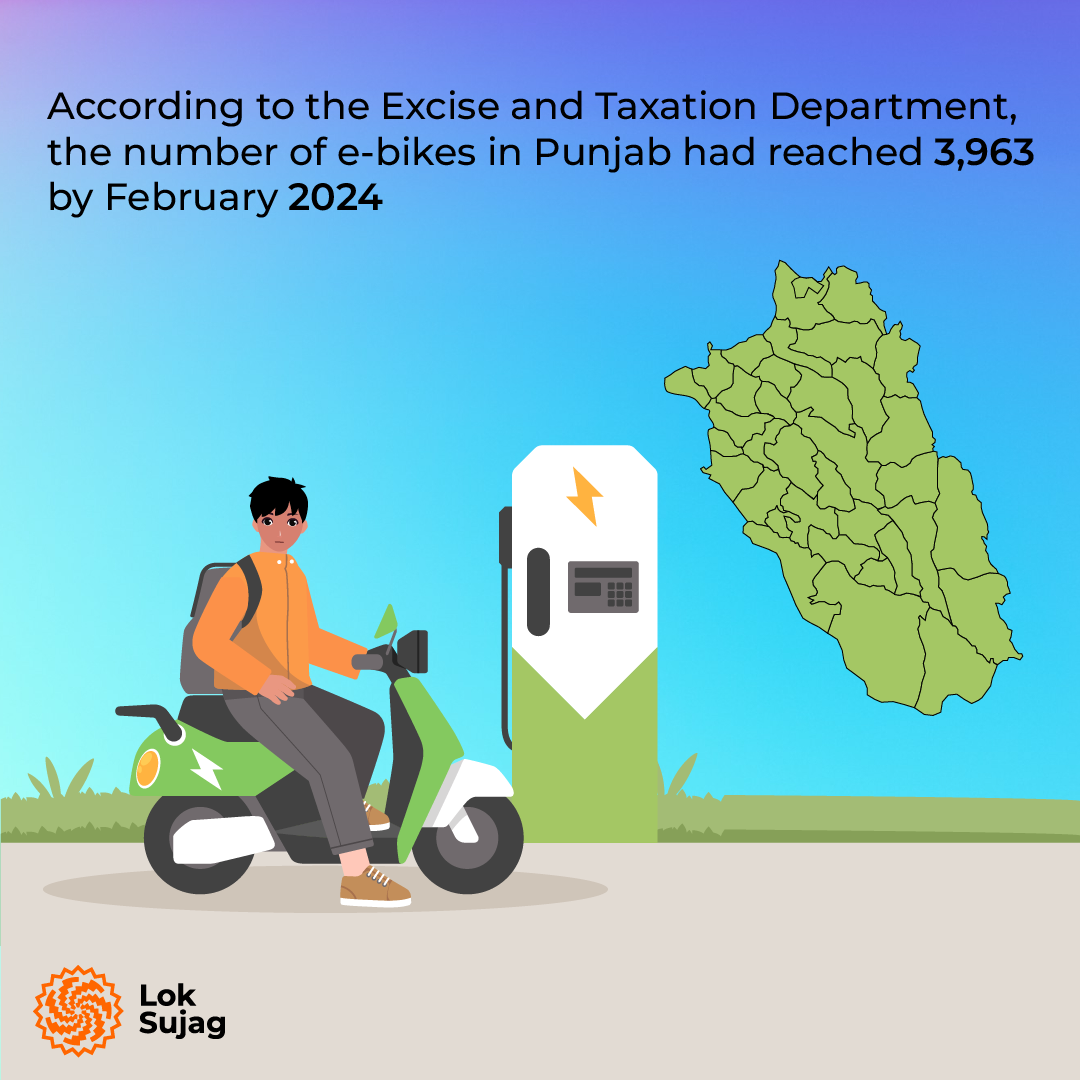
According to the department, the maximum number, 1,318, of e-bikes are registered in Lahore, while three are in Attock, 193 in Bahawalnagar, 63 in Bahawalpur, 54 in Bhakkar, seven in Chakwal, 56 in Chiniot, 42 in DG Khan and 331 e-bikes are registered in Faisalabad.
Similarly, the number of e-bikes in Gujranwala is 81, Gujrat 78, Hafizabad 36, Jhelum three, Jhang 23, Kasur 15, Khanewal 29, Khushab 14, Layyah 27, Lodhran 16, Mandi Bahauddin 36, Mianwali 123 and Multan 188.
Muzaffargarh had only one e-bike registered while Nankana Sahib had 92, Narowal 83, Okara 79, Pakpattan 81, Rahim Yar Khan 124, Rajanpur seven, Rawalpindi 41, Sahiwal 98, Sargodha 146, Sheikhupura 14, Sialkot 257, Toba Tek Singh 170 and 34 in Vehari.
Progress at a snail’s pace
Although the trend of using e-bikes is increasing in the country, its progress seems to be slow.
Rana Mubashir Hassan, a resident of Lahore, says that he is using a bike that is made by a local company by modifying a petrol bike. Its engine has been replaced by batteries and a motor has been installed with the rear tyre.
“The tank is also there but it is useless.”
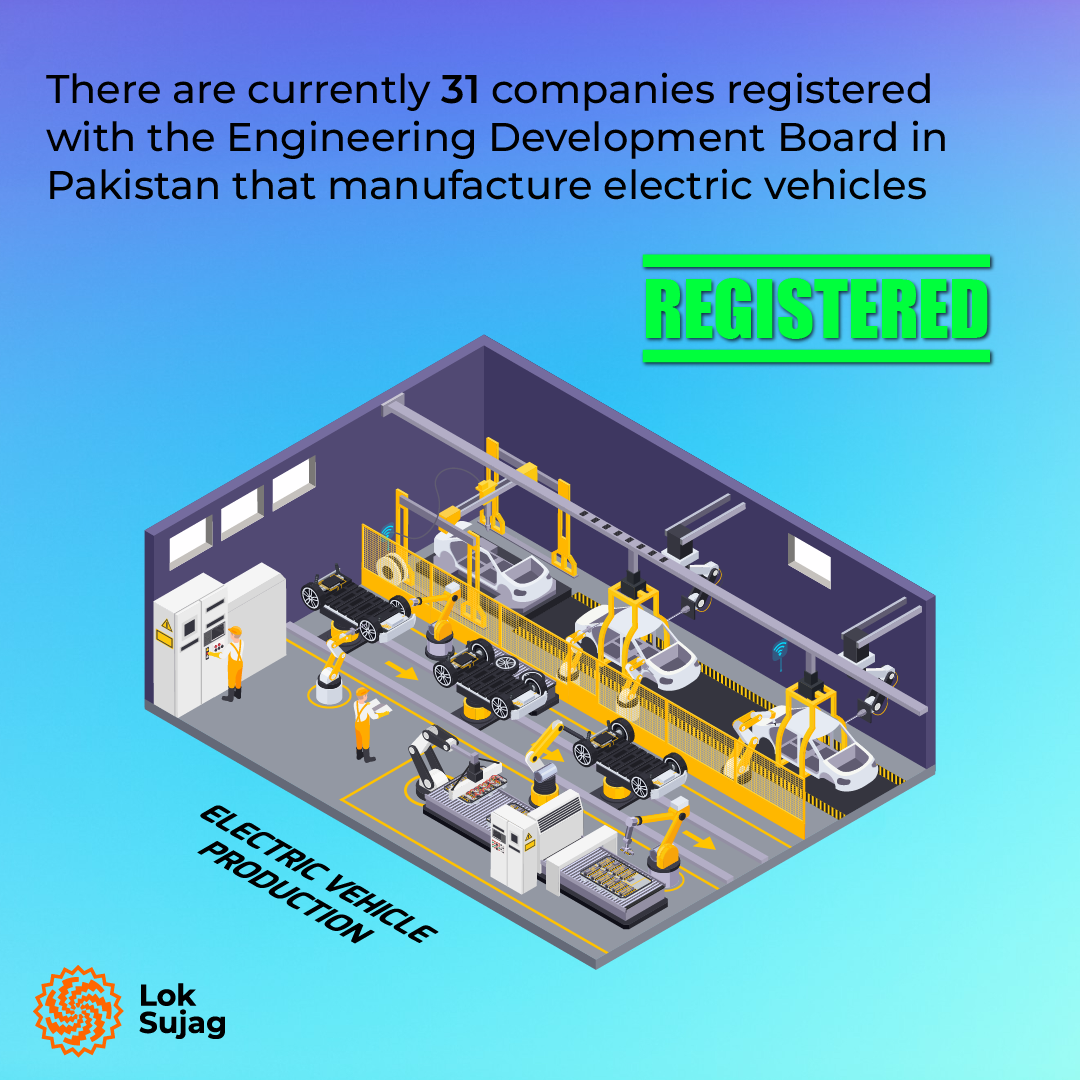
He also complains about its speed. According to him, a petrol bike drives at a speed of 60km per hour with two or three passengers while an e-bike can barely run up to 60km even with a single rider.
“Its speed does not go above 50km whenever I take my wife and child on a ride. Another problem is rain. Once my bike got stuck in an underpass in rainwater after a heavy rain and it caused me great trouble.”
Muhammad Ramzan, a bike technician in Gulberg, Lahore, says that the electric meter of e-bikes cannot be repaired; hence, it should be protected during rain or wash. Although the motor and controller are waterproof, they need to be replaced if they get wet.
To cope with these difficulties, the Punjab government has decided to provide petrol bikes along with e-bikes to the students. According to the Directorate General Public Relations, out of 20,000, 1,000 will be e-bikes and 19,000 petrol bikes.
The Punjab govt’s initiative
Earlier, the caretaker government had announced the distribution of 20,000 e-bikes in the province. However, now, Chief Minister Maryam Nawaz says that although e-bikes reduce environmental pollution, they are not currently feasible due to battery theft and low mileage.
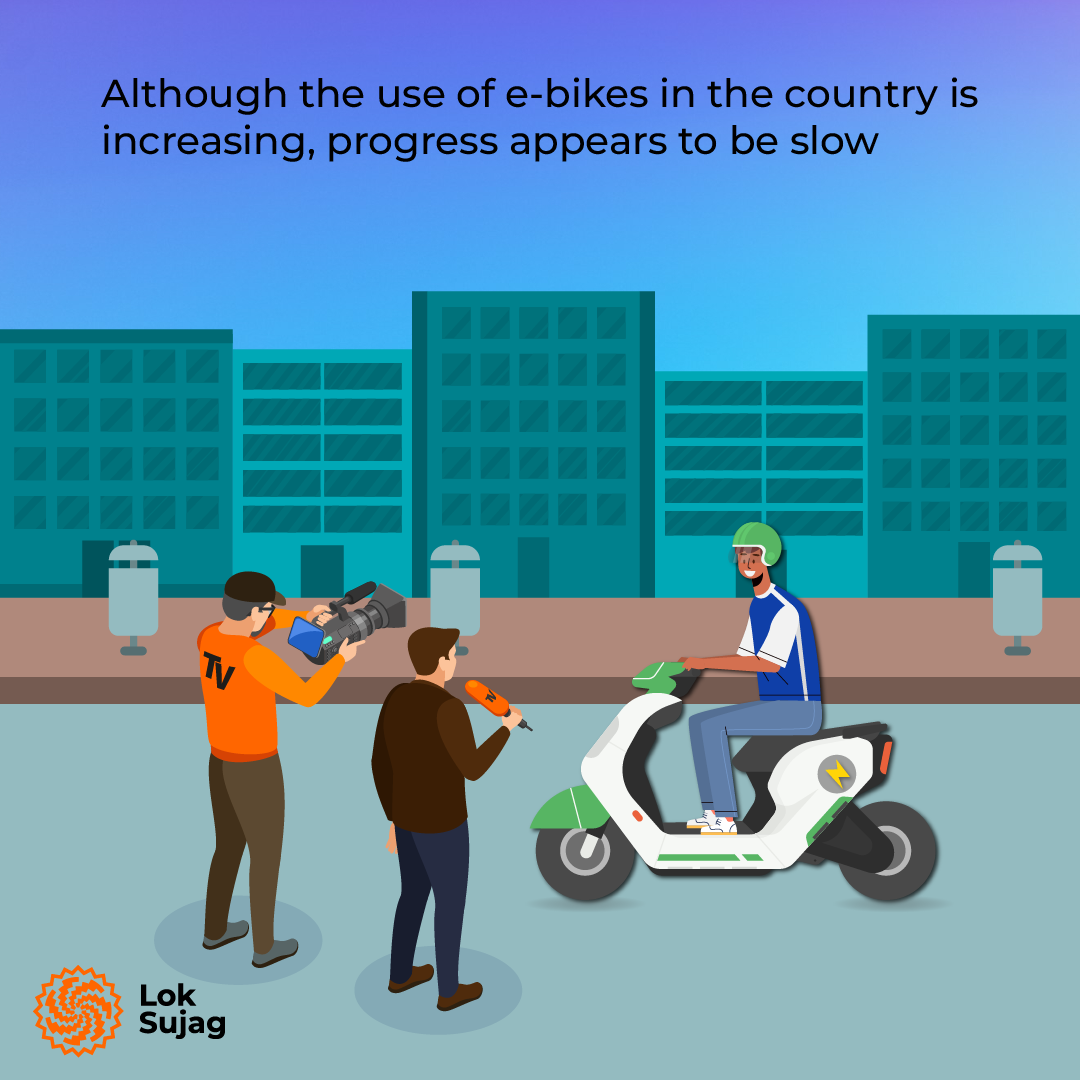
The government has an agreement with the Bank of Punjab to provide easy instalments to the students for which a draw is expected in May. According to this agreement, an instalment for an e-bike will be Rs10,000 per month while that of the petrol bike it will be Rs5,000. For this purpose, there is a separate quota for boys and girls. In the urban areas, the quota will be equal for male and female students. However, in the rural areas, it will be 70pc for male students and 30 percent for female students.
Manufacturers of e-bikes
Currently, there are 31 electric vehicle manufacturing companies registered with the Engineering Development Board in Pakistan, but only a few of them manufacture e-bikes and rickshaws, including Jolta Electric, Pakzone, Road King, Vlectra and MS Jaguar.
Most companies are converting petrol motorcycles into e-bikes but this experiment has not been successful according to experts.
Hidayatul Rehman is the sales and marketing director of the Chinese company EVOne, which assembles e-bikes and rickshaws. He says that some companies are installing used lithium batteries in the bikes, which affects their performance. He says an e-bike with an original lithium battery costs Rs400,000 to Rs450,000, but the price is kept down to Rs250,000 due to the buying of lithium batteries in lots that run for 40 to 50km in one-time recharge.
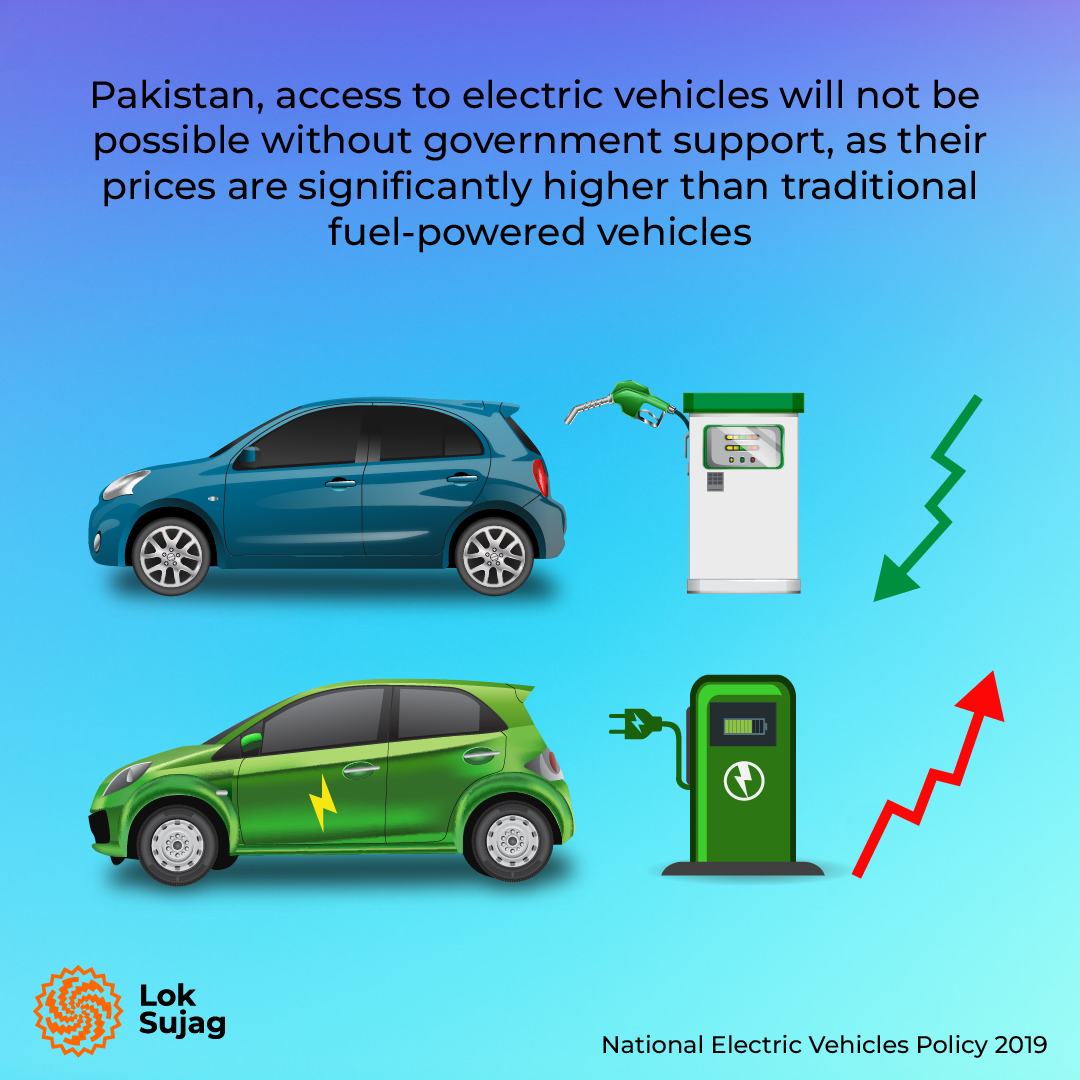
According to Rehman, Chinese companies have suggested adopting scooter designs instead of converting petrol bikes to e-bikes. He adds that some Pakistani companies are assembling their parts imported from China.
He says that four, five or six batteries are fixed in e-bikes as per their capacity, in which each battery is of 12 watts. In the market 12-watt batteries of 20, 23, 26 and 38 amperes are available and they vary in power. A battery with more amperes gives more mileage.
Rehman adds that lead-acid graphene-based batteries are also used in e-bikes, which are easily recharged in six to eight hours at home. Their full charging consumes about two-and-a-half units of electricity. The average lifespan of this battery is 1,000 charge-discharge cycles and the warranty is one-and-a-half years.
The companies specify distinct features following the performance of the e-bikes available in the market.
The MS Jaguar claims the running distance of its e-bike is up to 71km on a fully charged battery that takes five hours.
Also Read
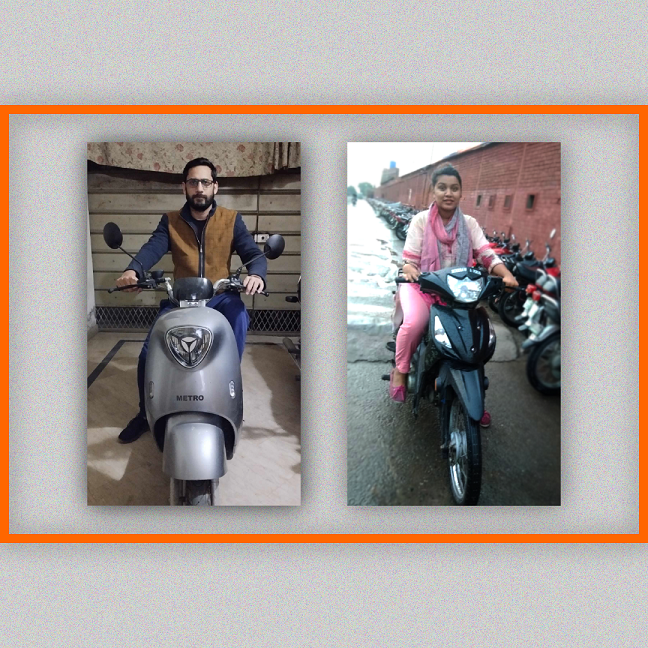
Electric Bikes: Empowering Individuals and Combating Climate Change
According to Jolta Electric, the company has introduced four models of e-bikes and one scooter with a speed of 50 to 80km. Scooty is specially designed for women. The company’s heaviest bike J125L has a top speed of 80 to 100kmph. The company claims that its battery can be easily recharged.
Similarly, Neon M3 is a sports e-bike with a 2,000-watt motor and up to 90km speed. It has an automatic transmission i.e., the bike shuts off automatically when its battery reaches 20pc.
Another e-bike ‘Sunra' which can reach the speed of up to 60 km per hour is also available in the market. However, it has a 1,500 watts battery.
Subsidies a must for more e-bikes
The National Electric Vehicles Policy recognises that initially, availability of electric vehicles in Pakistan will not be possible without government support as they cost much more than conventional fuel vehicles. Therefore, there are proposals to give people subsidies, incentives, and tax exemptions to adopt e-vehicles just like the rest of the world.
It is an immense challenge to introduce electric bikes in the country as the public has not seen any engaging government incentives yet.
Umer Afaq, the director of the e-vehicles project at the Lahore University of Management Sciences (LUMS), says while there is a need to spread awareness about the efficacy of e-bikes but it is also important to create confidence among the people regarding their durability.
“The e-bikes purchase in our country will increase only when the government adopts a policy of providing incentives on their purchase and registration.”
Published on 3 Apr 2024
